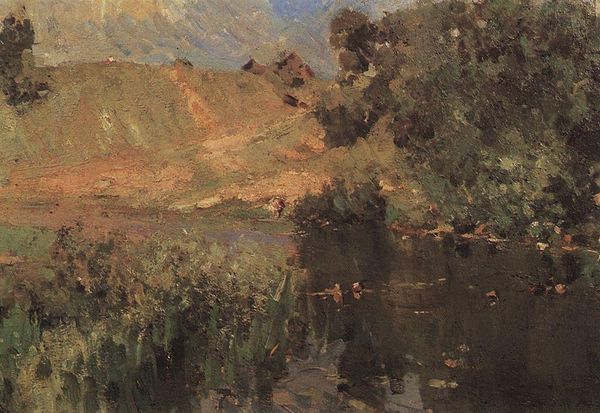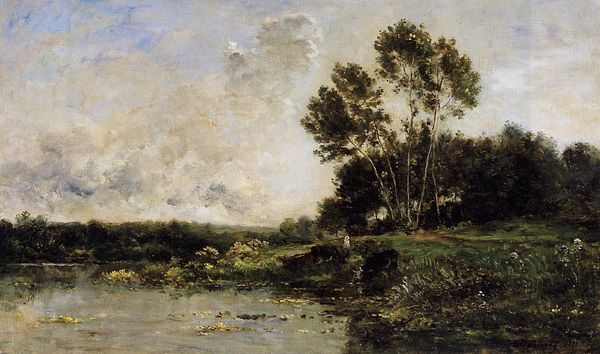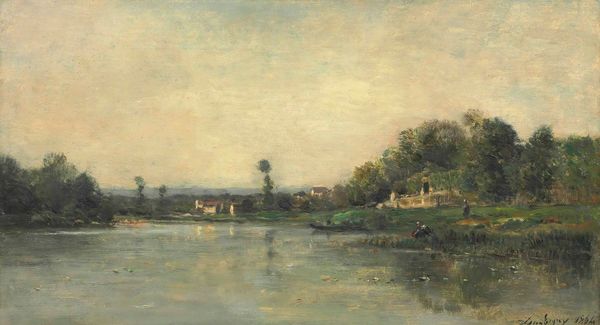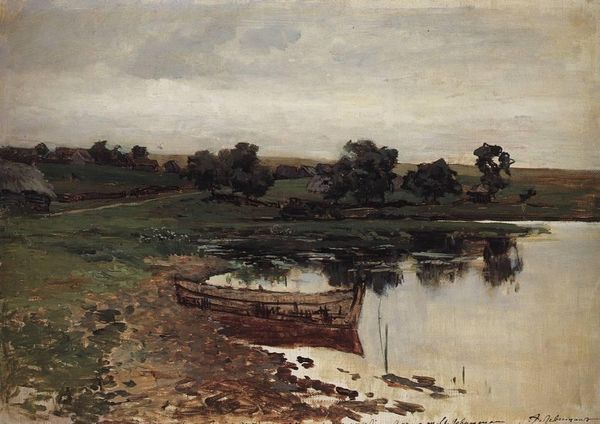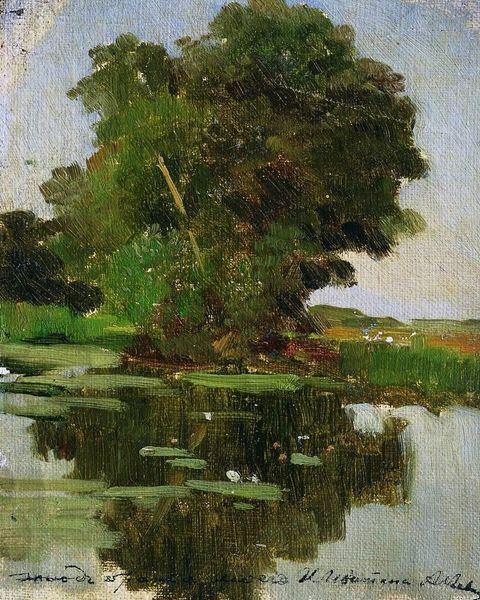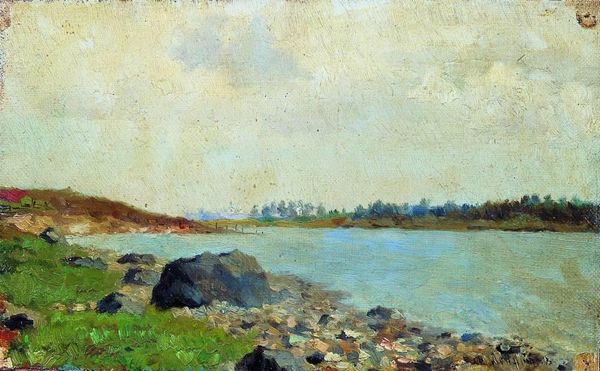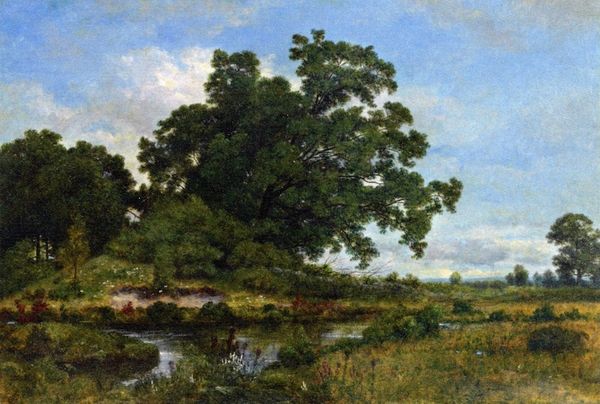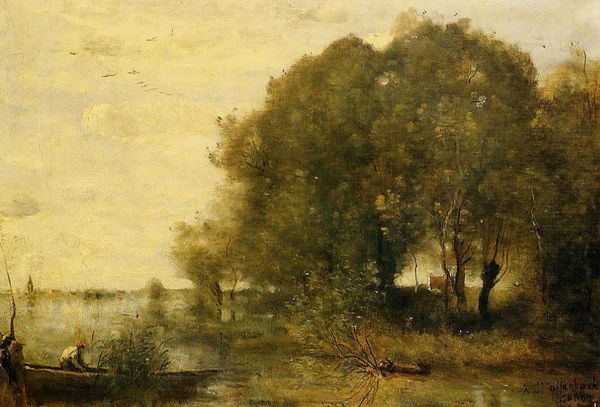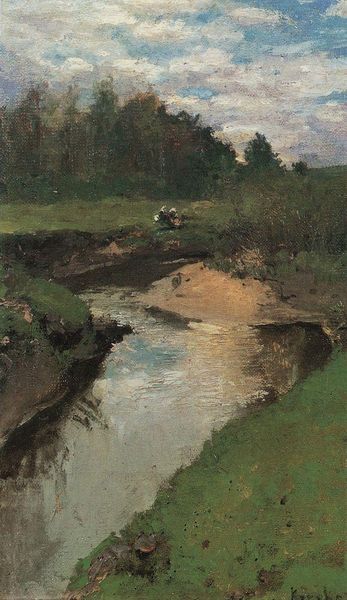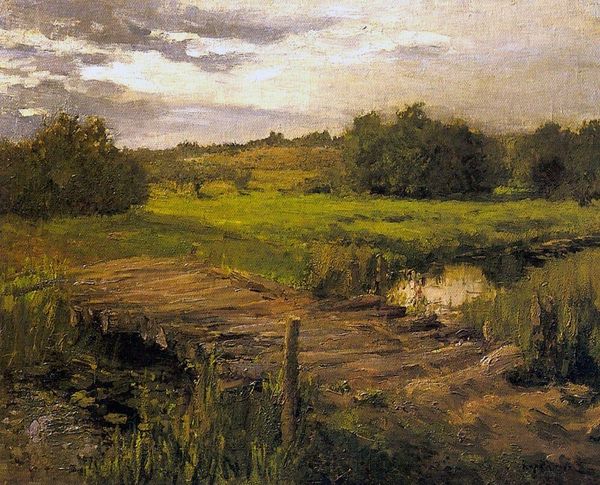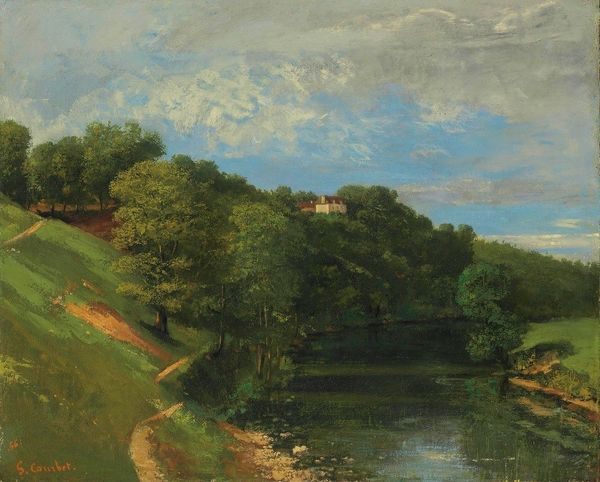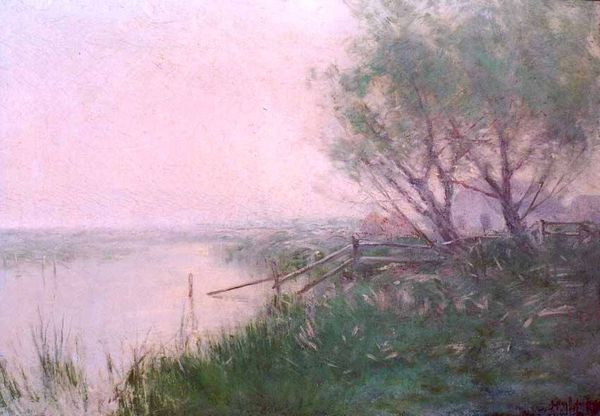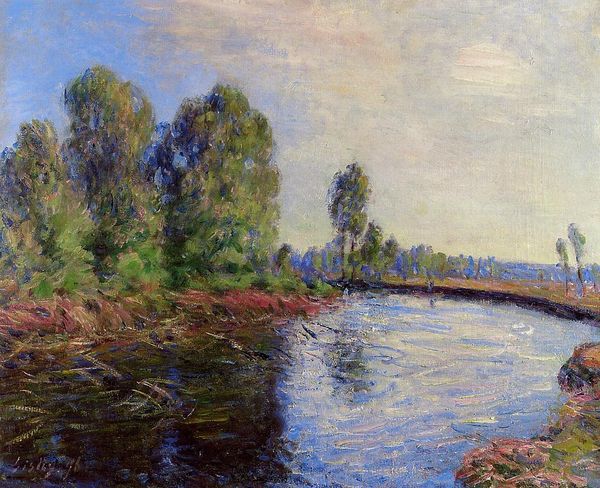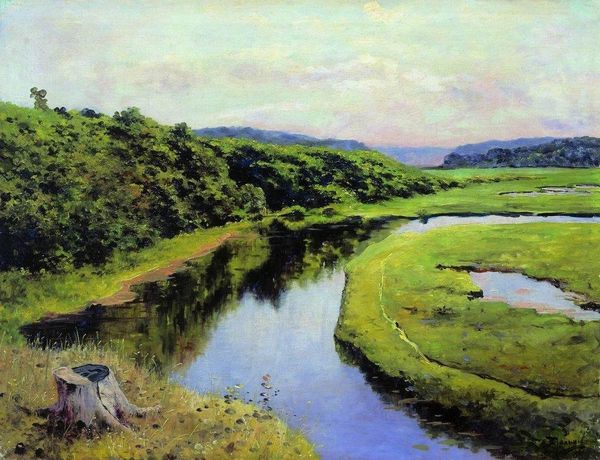
Copyright: Public domain
Curator: This is Konstantin Makovsky's "Landscape," painted around 1875. The textures come alive with visible brushstrokes in oil paint. It’s got that whole *plein air* feel, doesn’t it? Editor: It's moody. Somber. Almost a premonition. Look at that murky water and heavy sky; it evokes a palpable sense of foreboding. But, you know, a kind of Romantic foreboding – with a capital R! Curator: I get that! The brushwork definitely amplifies it, making it almost dreamlike, less about perfect realism and more about *feeling* the landscape, the raw emotion, don't you think? I love how the trees, though slightly blurred, add so much energy. Editor: Well, it's Romantic for sure. Let’s place this work in its historical moment. Mid-1870s Russia – a period of intense social and political upheaval, radical social reform movements and a growing divide between the peasantry and the aristocracy. That foreboding you sense is probably quite literal for many. It resonates within those historical currents. The landscape, then, almost stands as a witness to an era on the brink of change. Curator: That’s heavy stuff! And here I was, just basking in the "raw beauty" of nature... still, I suppose an artist always has something more to say. Though it looks more a visual poem for me than a statement on class war. Editor: And art can be both, can't it? Perhaps Makovsky is trying to grapple with the complexities of that specific moment by finding refuge or solace in something eternal such as nature. And don't let beauty fool you; the ruling classes always find ways to appropriate beautiful things as instruments of control! Curator: Good point. I am starting to notice how he paints the dirt almost the same shade of green that appears in the sky... it adds this sort of... uneasy harmony? Almost too close of a palette to comfort the eye, huh. Editor: It highlights the deep interconnection. The earth below and the skies above are painted with equal urgency and attention, and neither is particularly welcoming... reflecting the turbulent relationship of society at the time. The painting hints at nature's indifference to the human drama playing out within it. Curator: So, maybe not the escape to nature that I originally interpreted. Hmm… Well, I'll never look at a Russian landscape the same way again. Editor: Precisely. And that’s the beauty of art: to continually reframe how we understand both ourselves and the world around us.
Comments
No comments
Be the first to comment and join the conversation on the ultimate creative platform.
